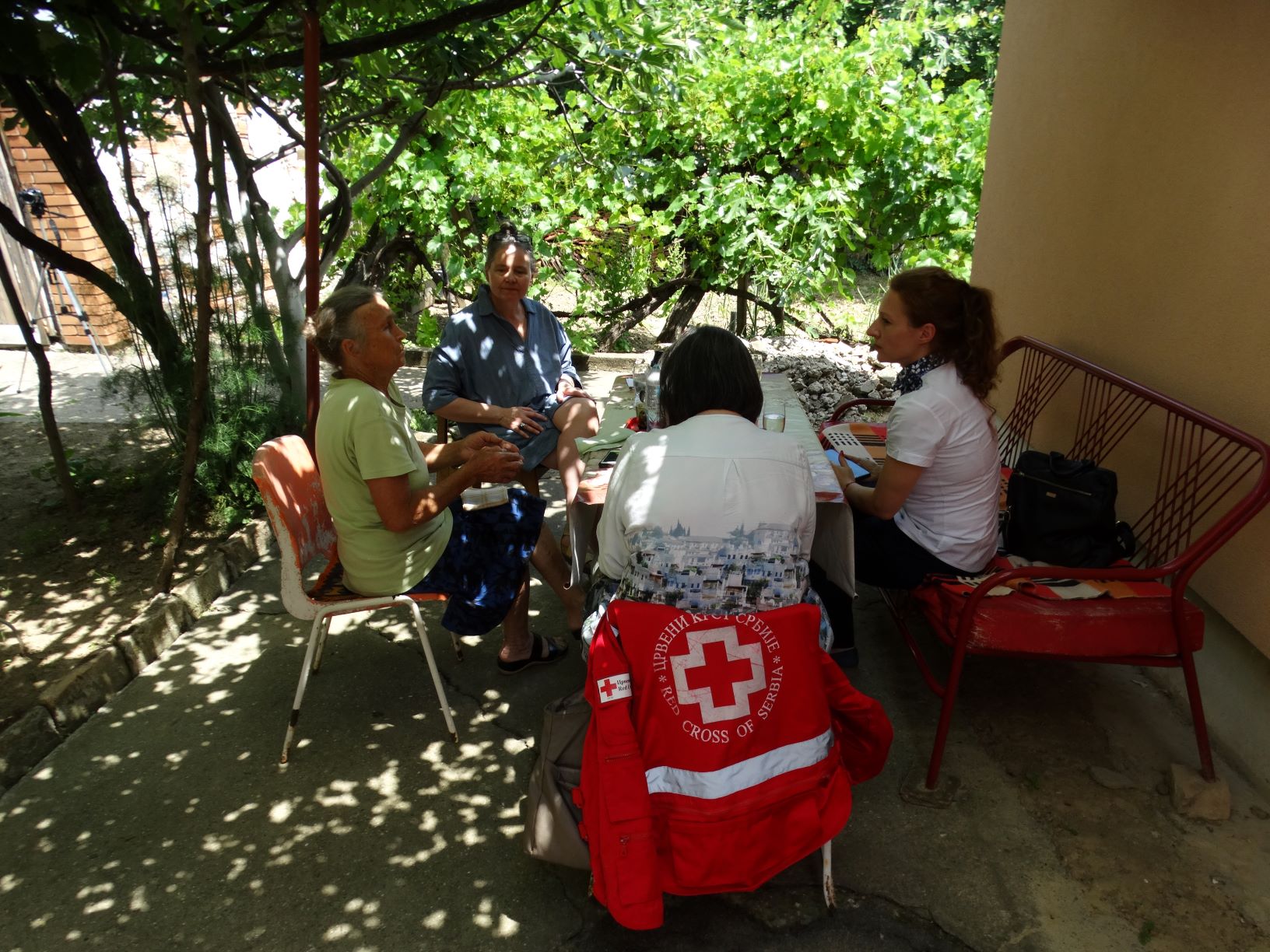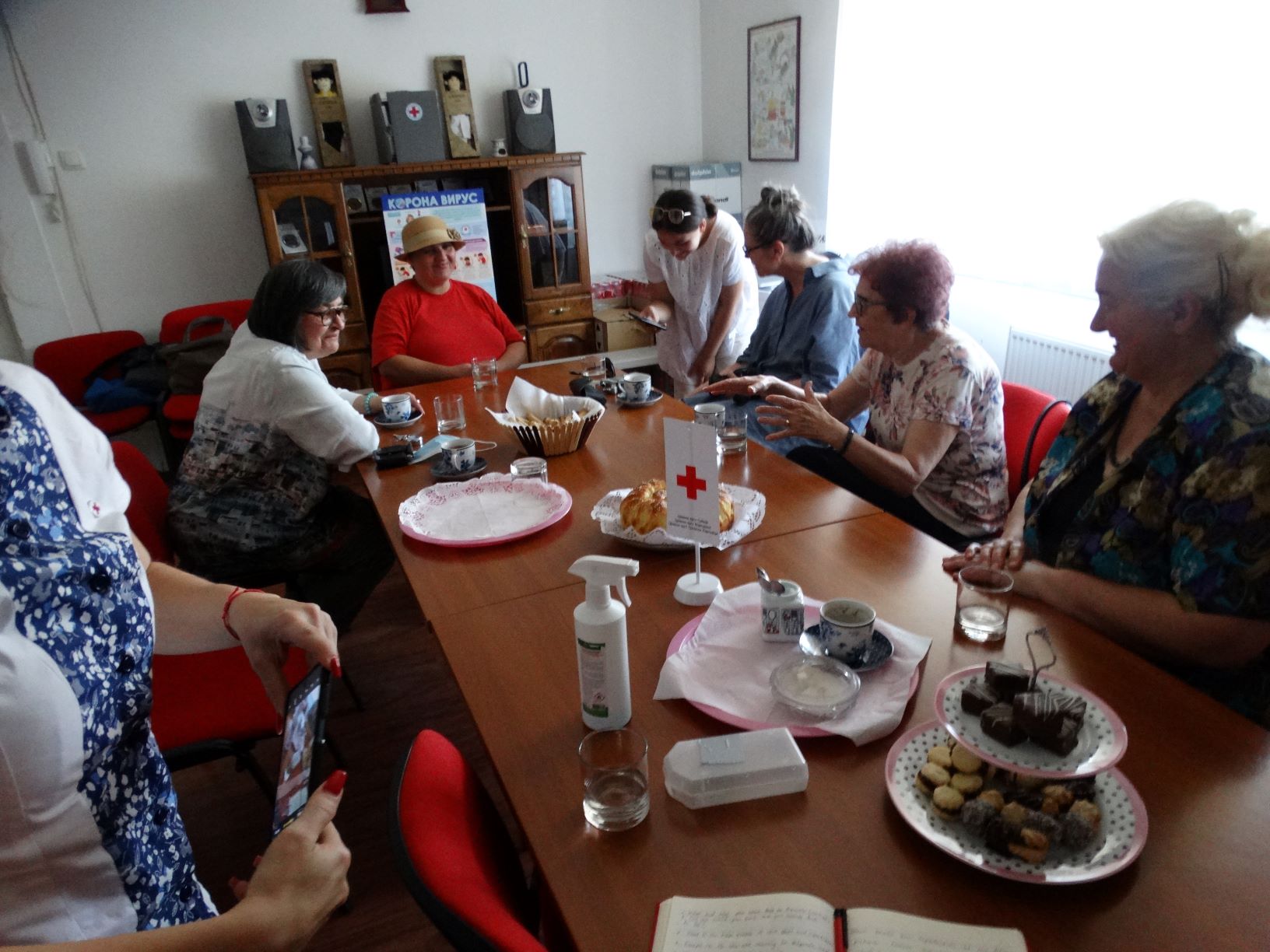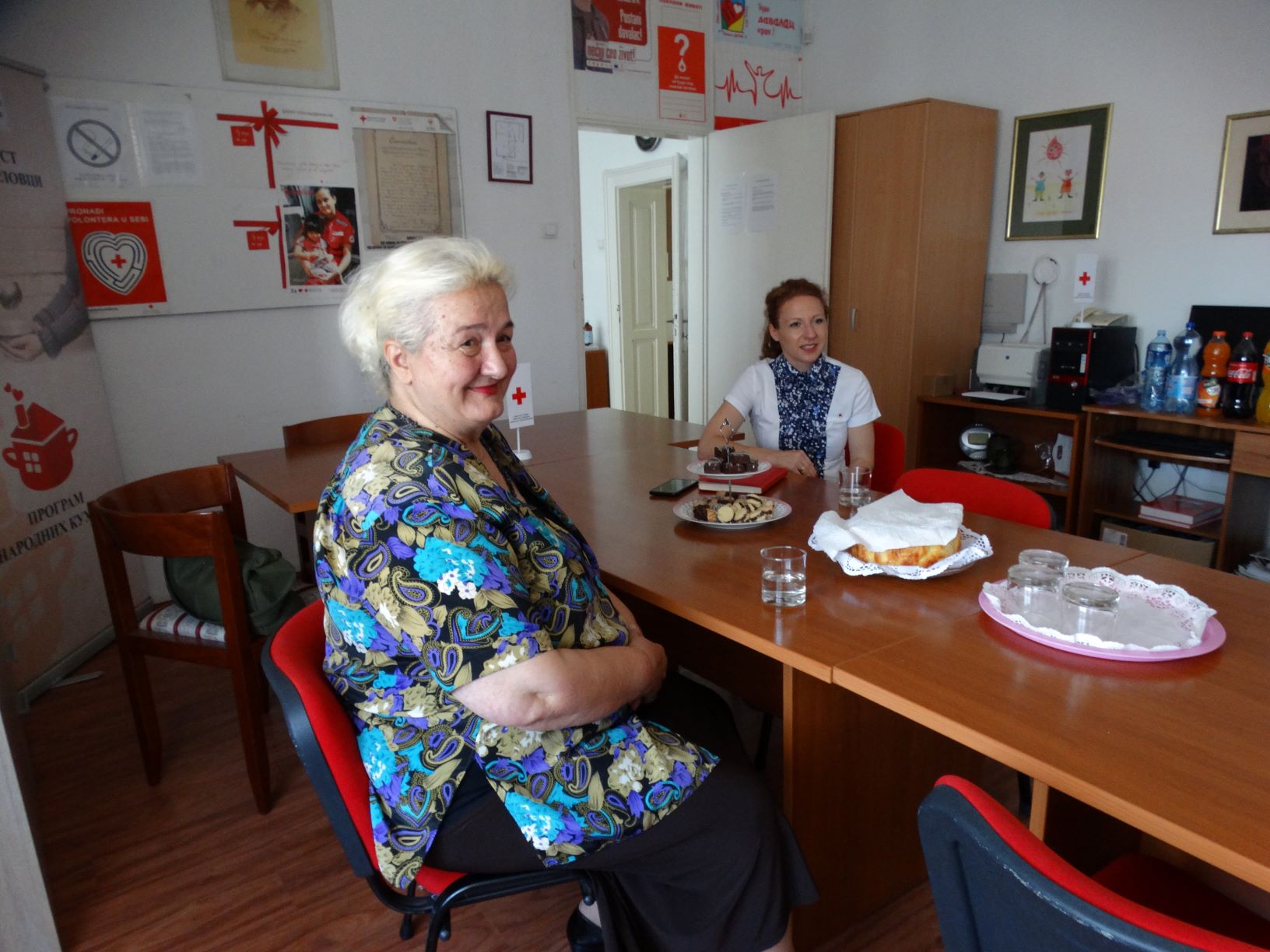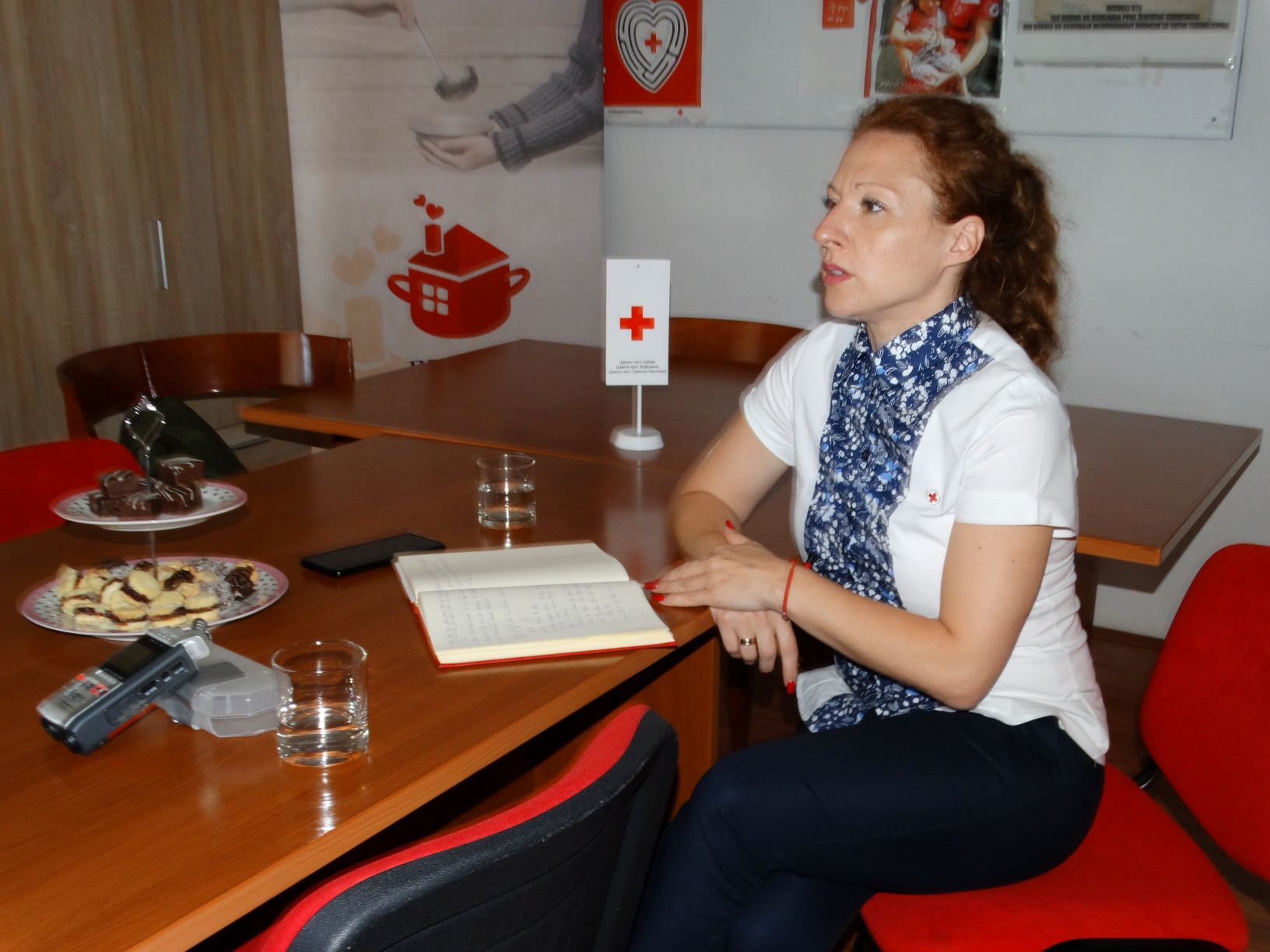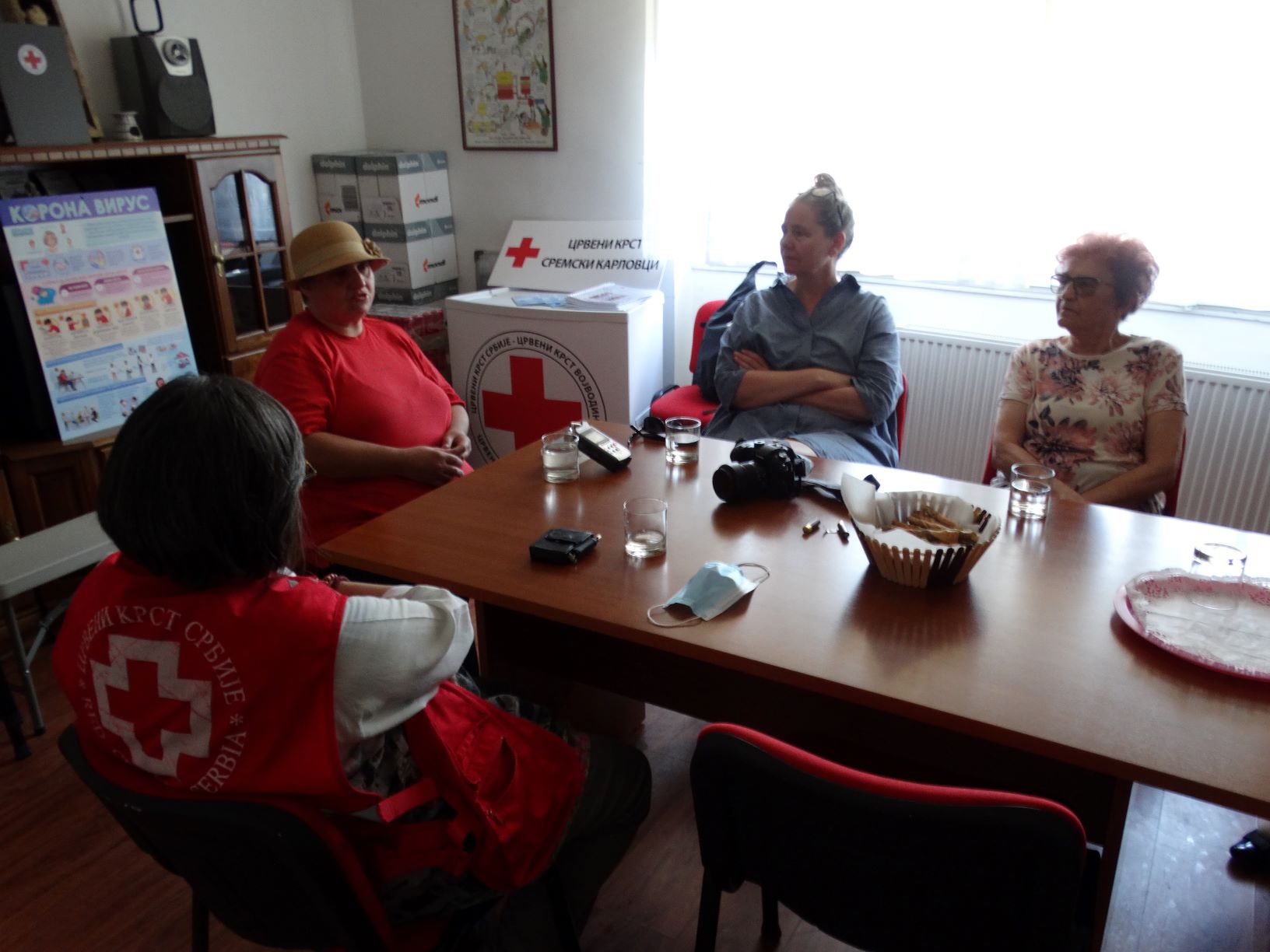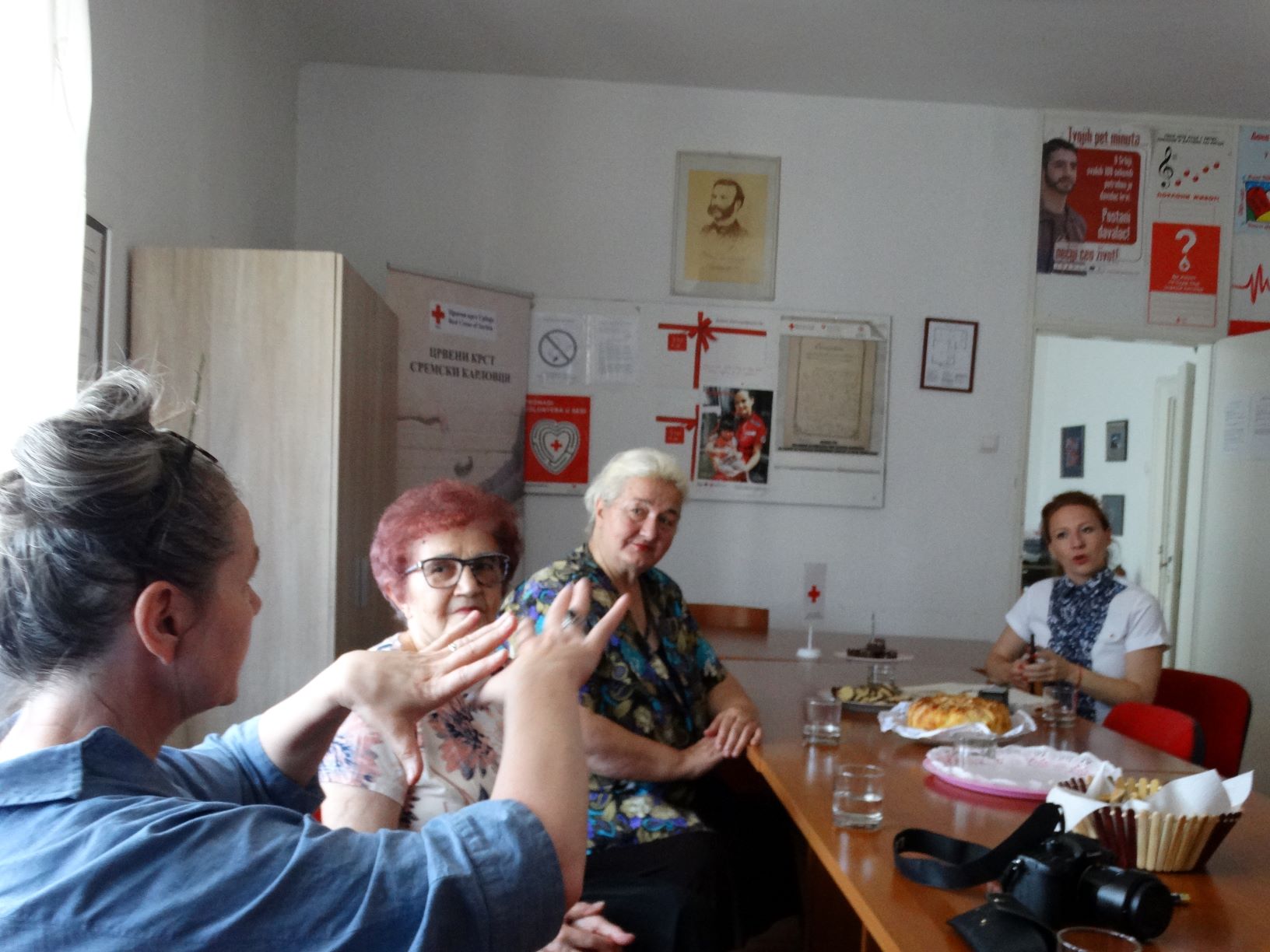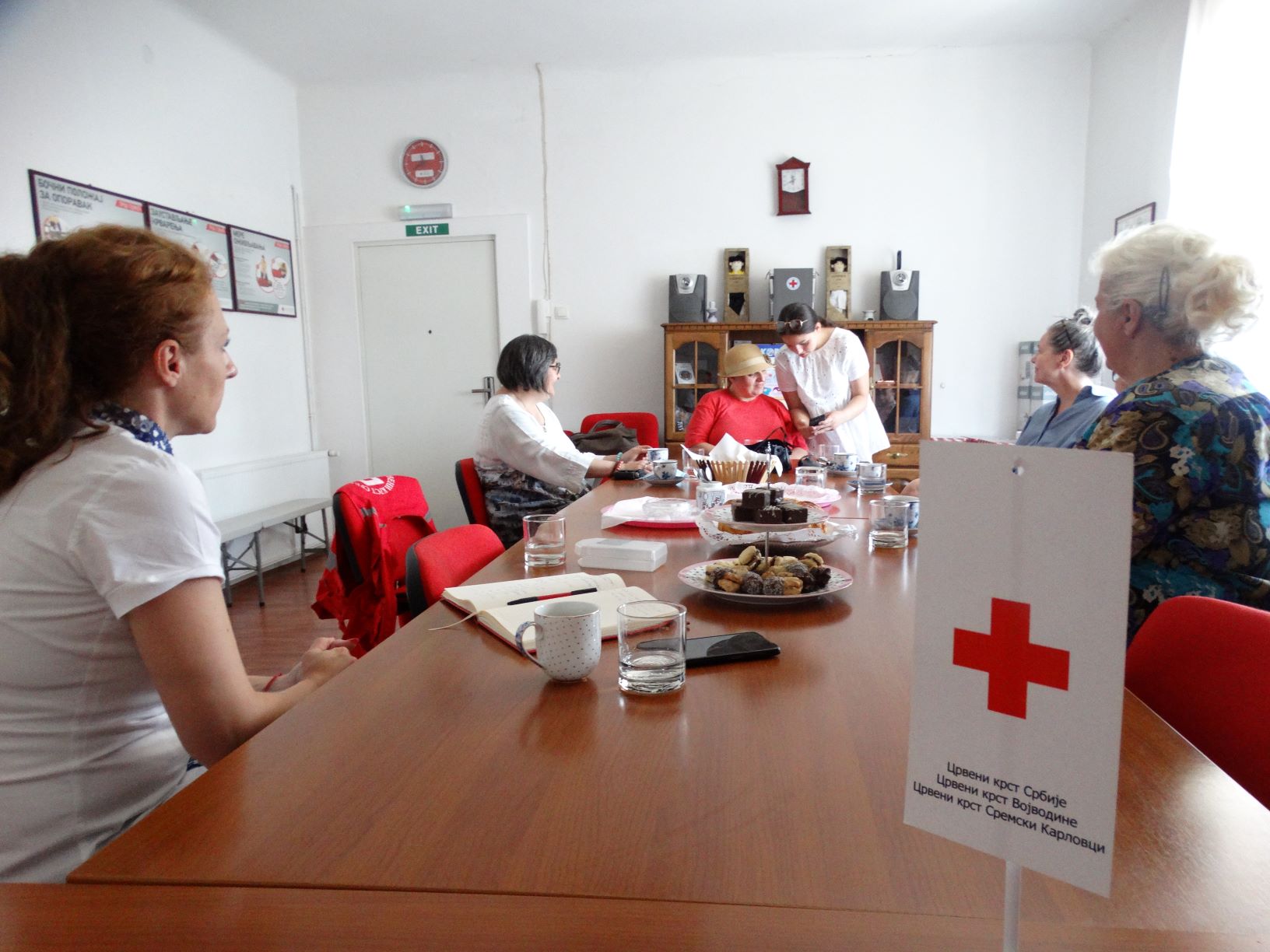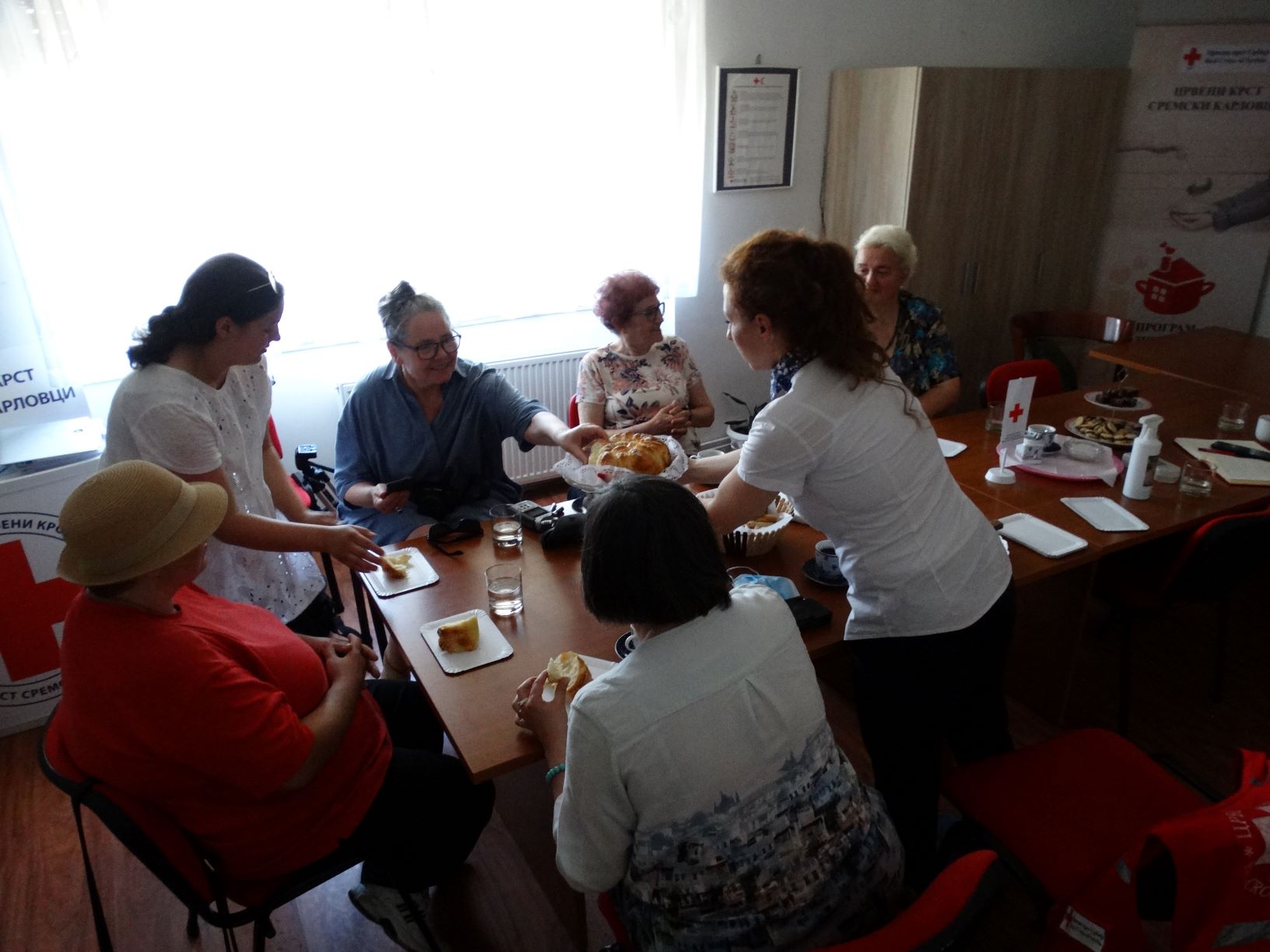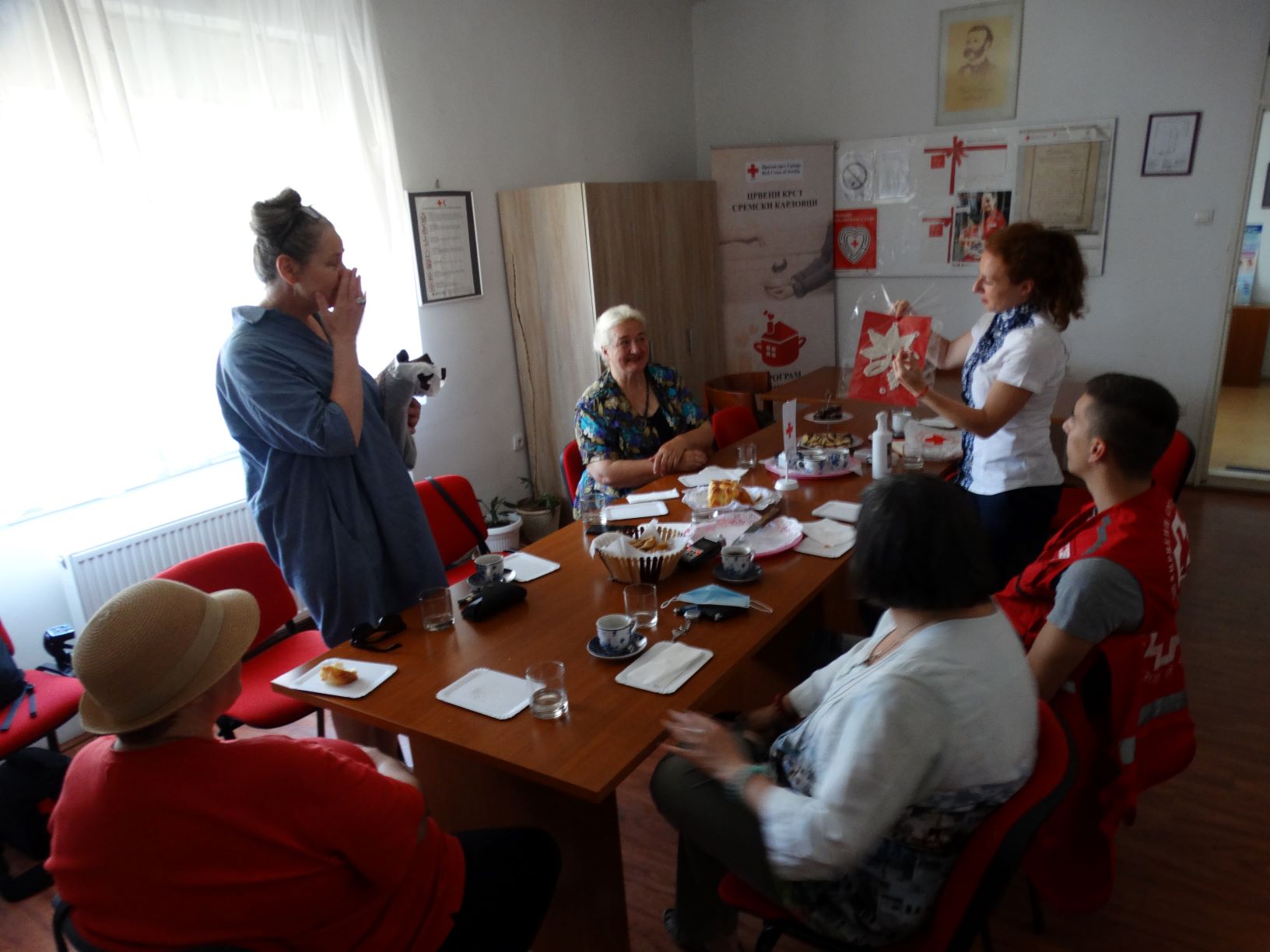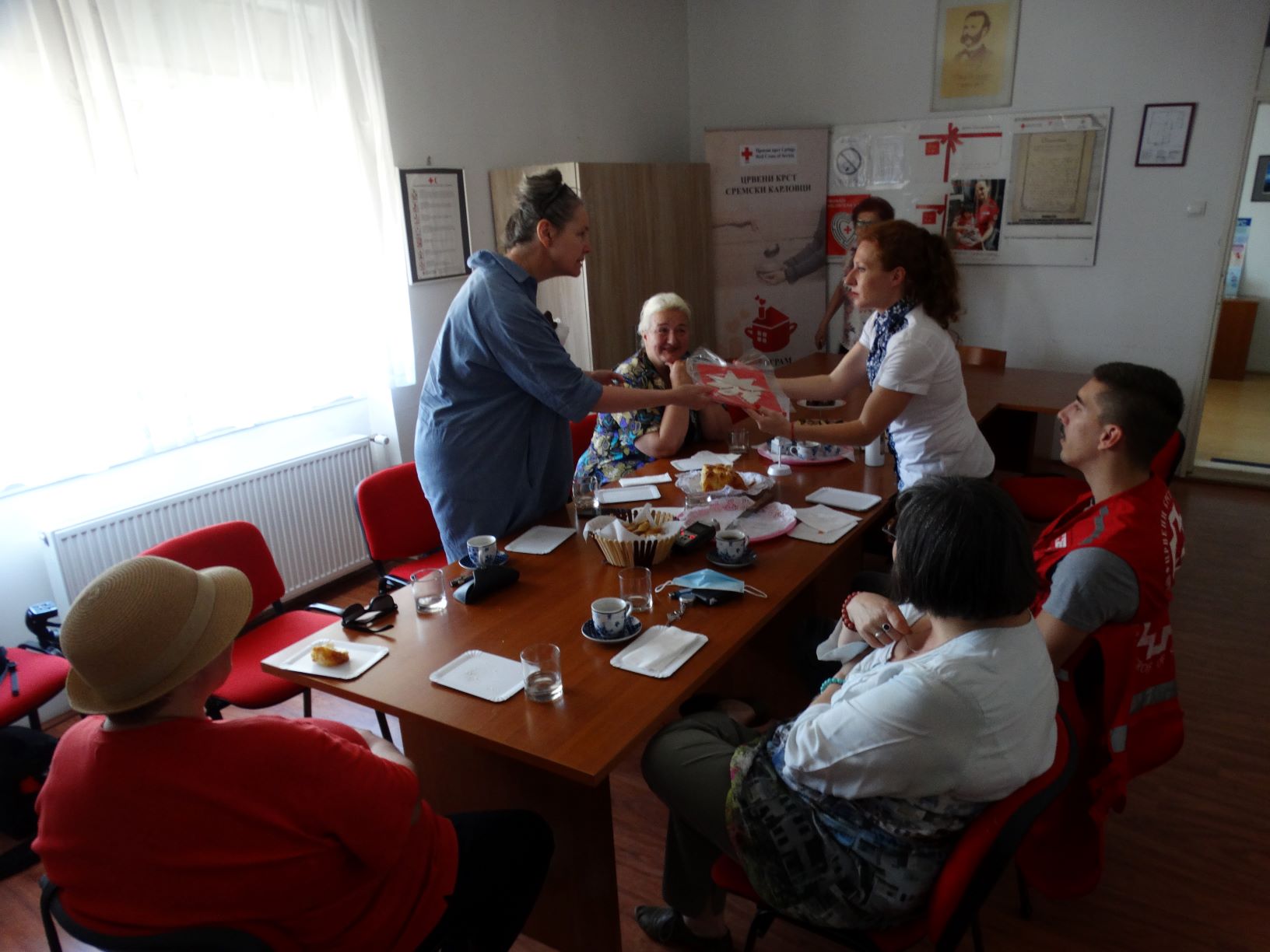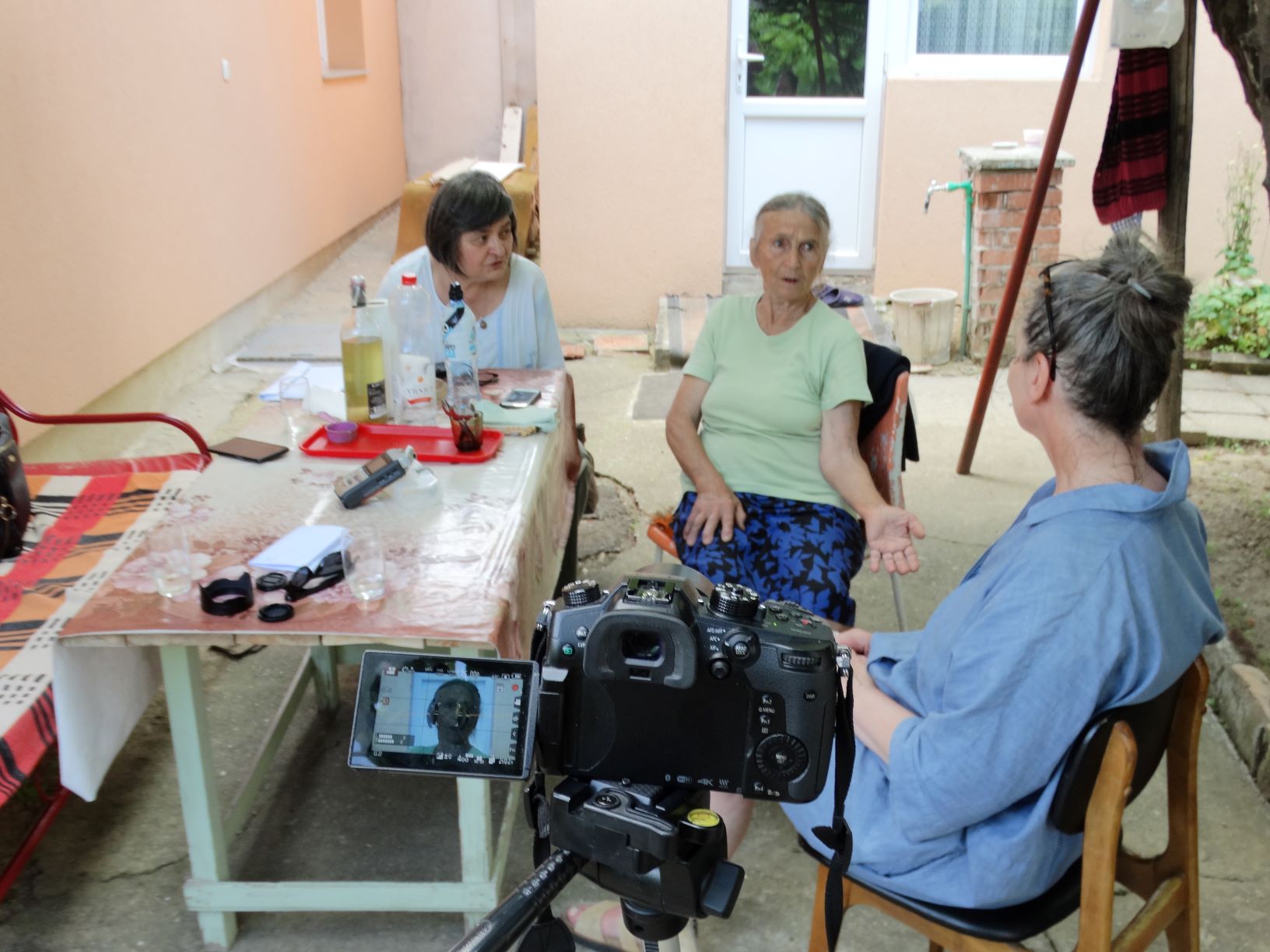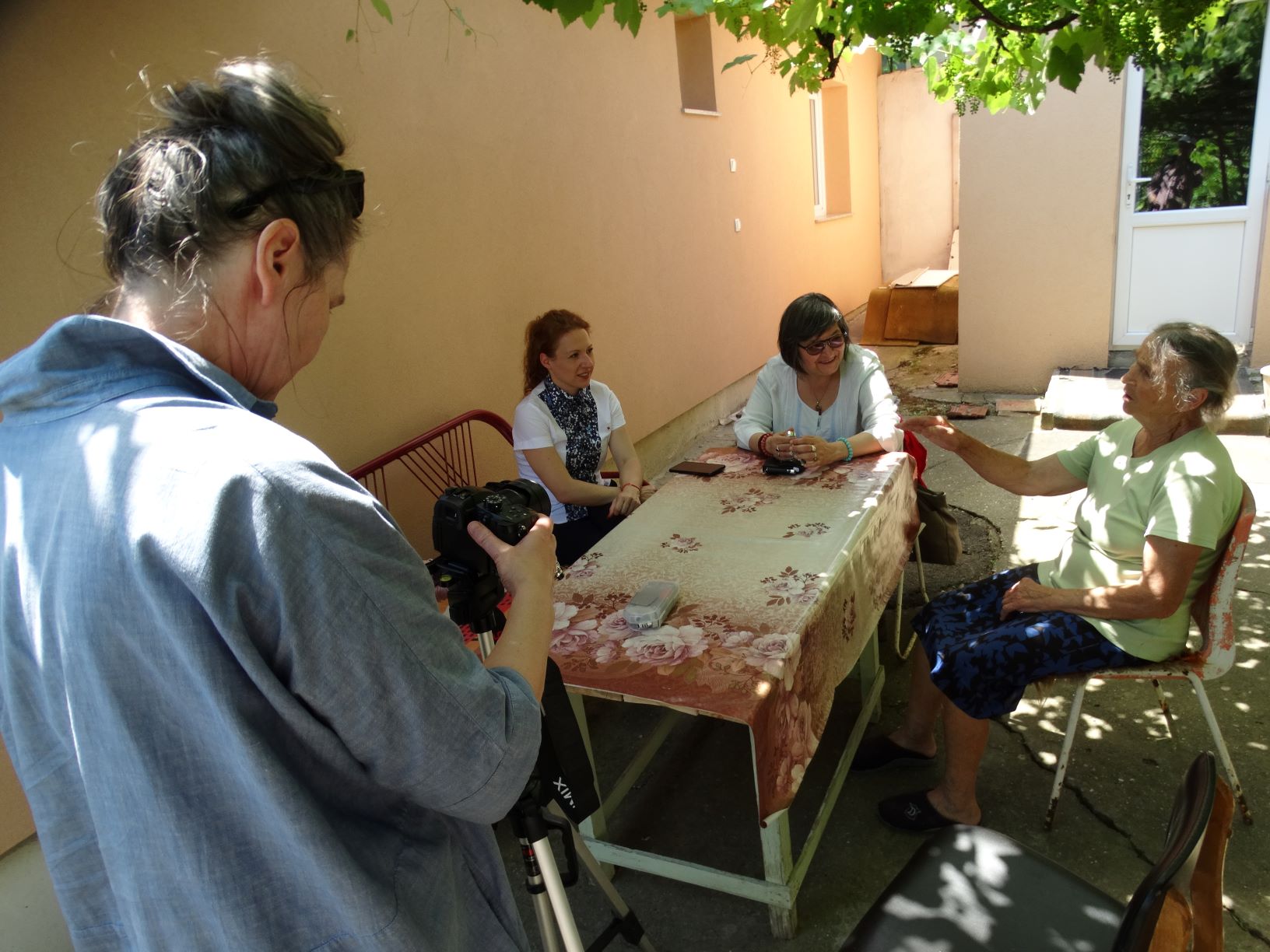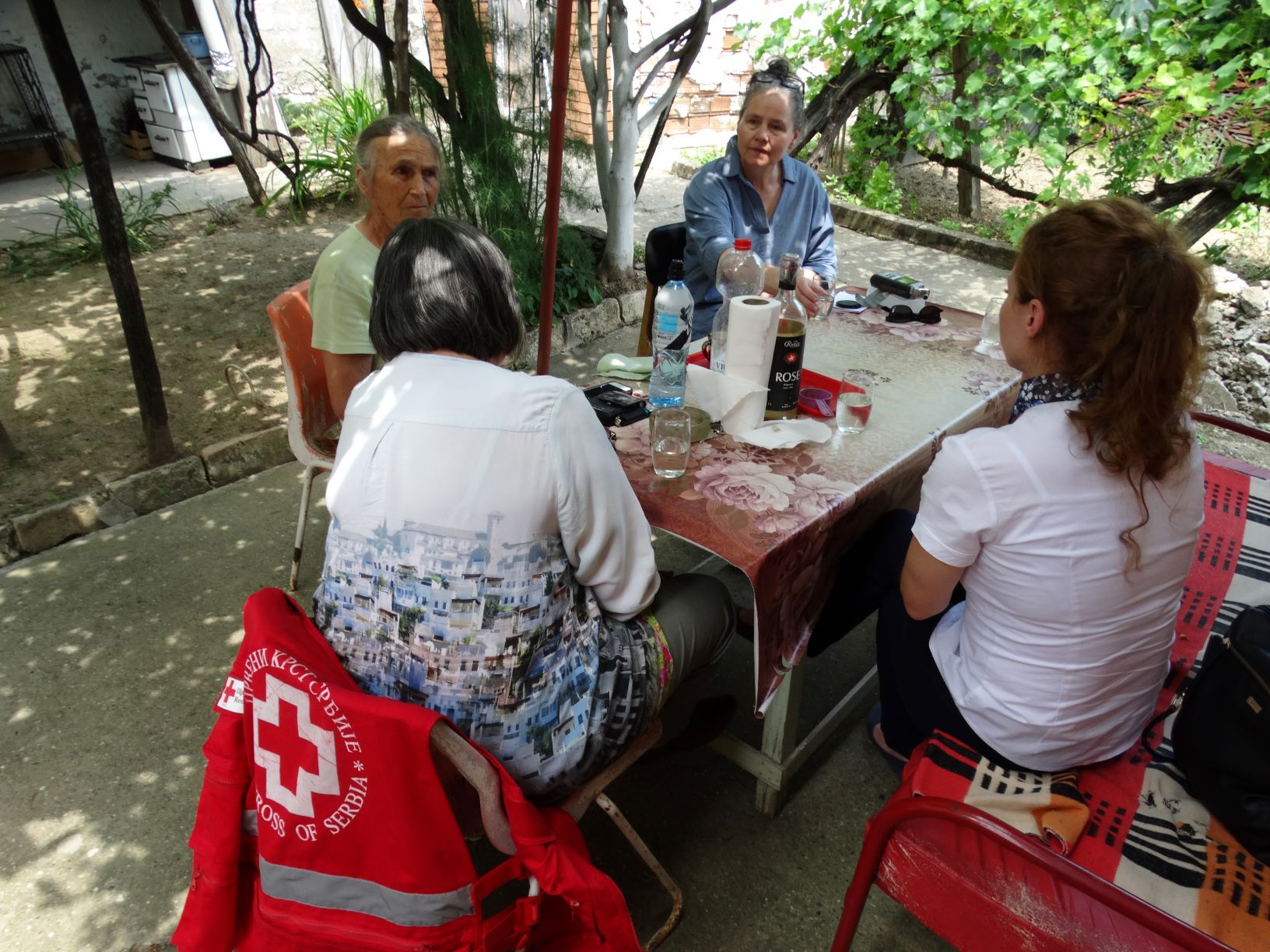The clock is ticking love
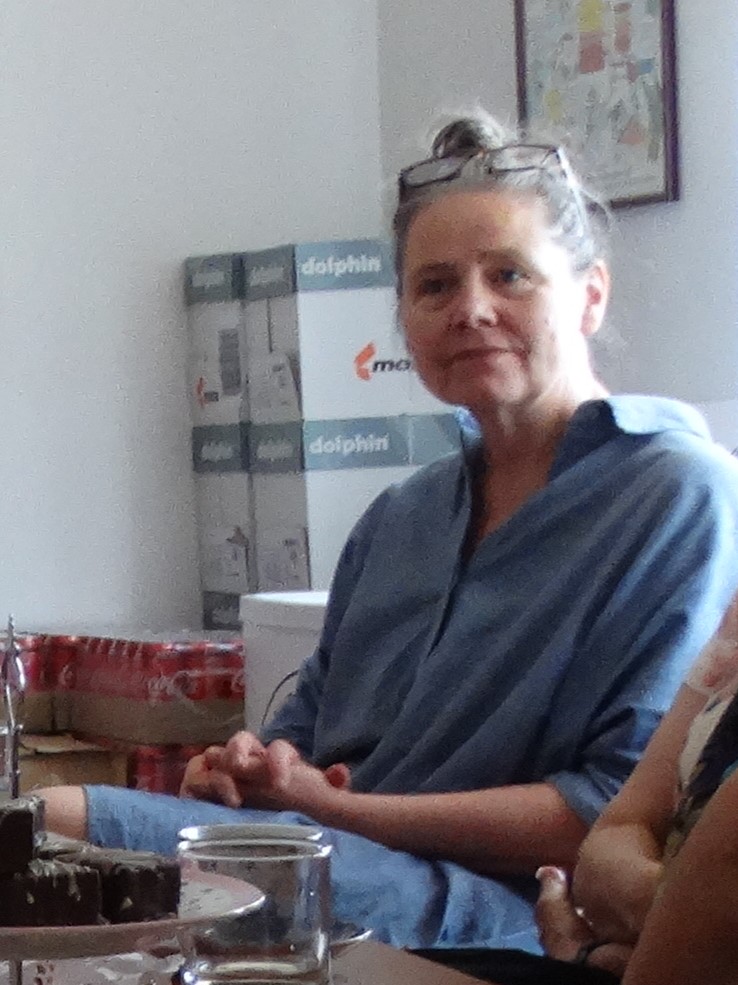
As soon as the borders opened again, and vaccines spread around the world, after the fear, worry and uncertainty, the artist Radhildur Ingadotir from Iceland, who made and gifted 500 sweaters to refugees from former Yugoslav Republics who were staying in Sremski Karlovci 20 years ago, came to visit Serbia once again. The artist was preparing an exhibition in Reykjavik last year, but the corona virus slowed the plans down. Many things have changed since her last visit, but the humanity and kindness, that spread and multiply, remain.
At the foothills of Strazilovo, in the building of the Red Cross of Sremski Karlovci, those who are connected by the threads of Icelandic sweaters, gathered that warm June afternoon, surrounded by the traditional hospitality Vojvodina is best known for. It was fate that while we were going through donated clothes that were to be given to those in need, an Icelandic sweater appeared from the pile. The joy of Marina Fodor, the Secretary of the Red Cross of Sremski Karlovci, could not be put into words. The sweater appeared at the Red Cross once again, ready to offer warmth to someone else. The circle was complete, the love and kindness of the artist from Iceland found their way back to the Red Cross.
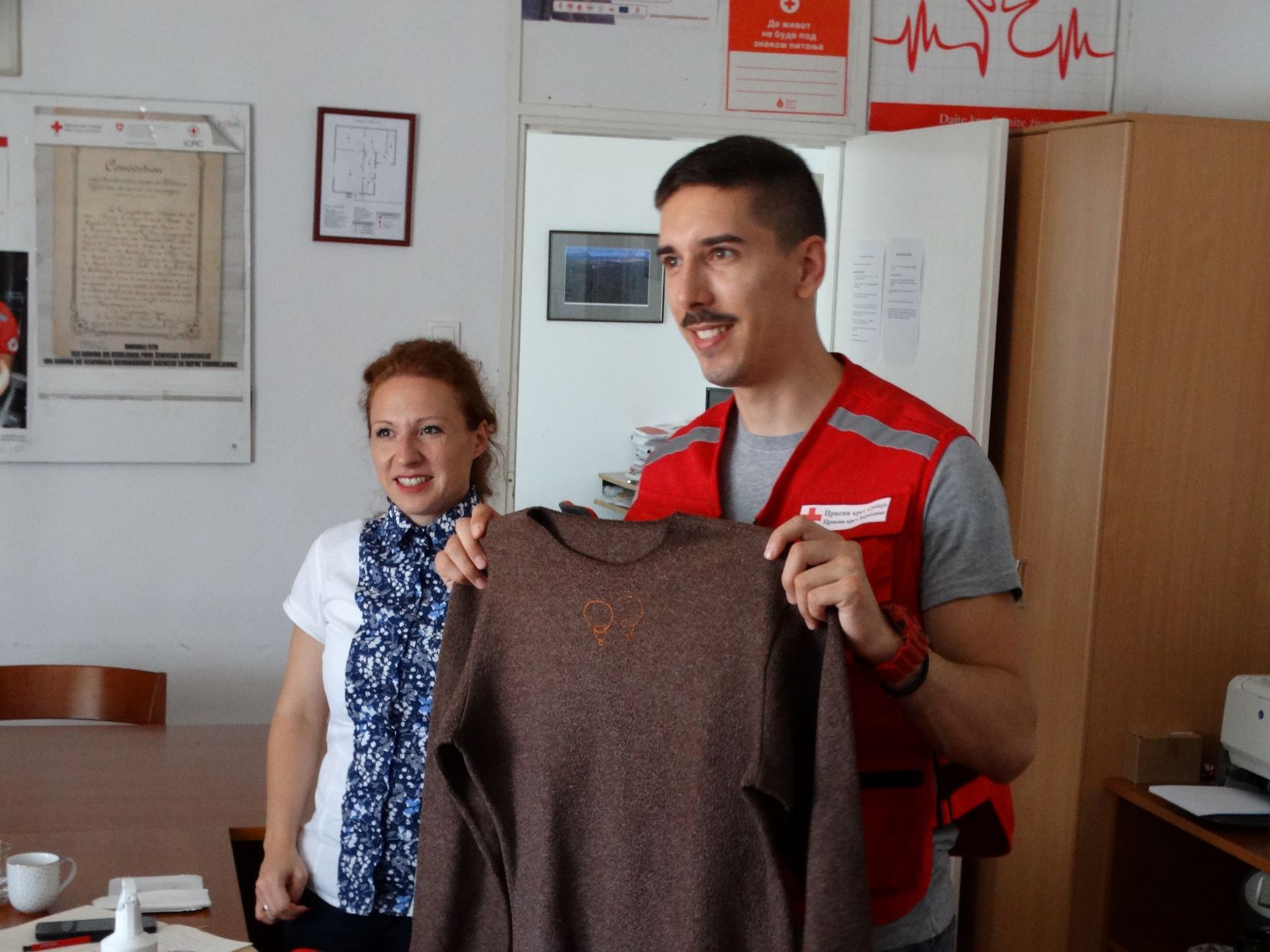
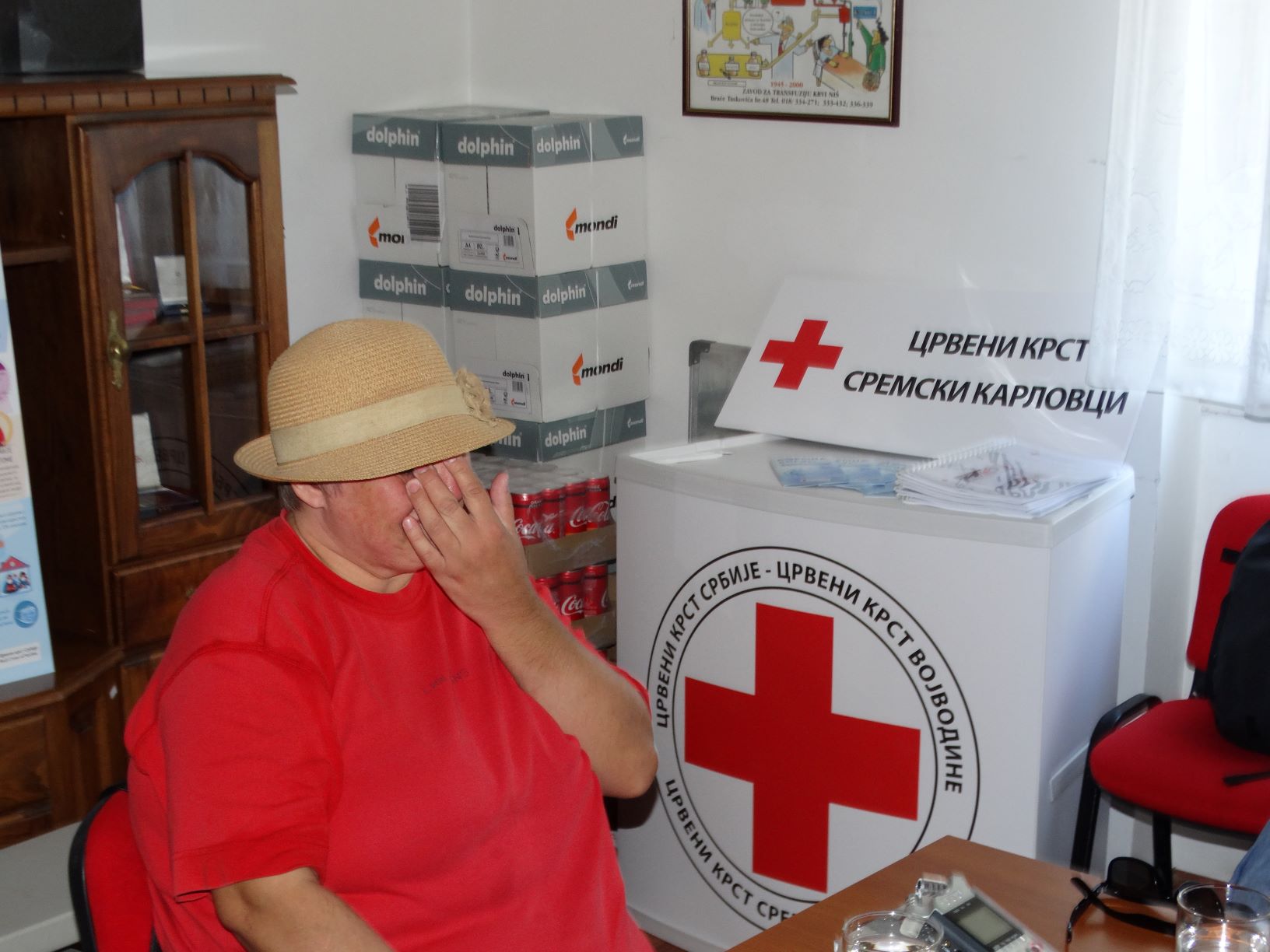
Gordana is originally from Sarajevo, and she and her daughter Danica meet Radhildur again. Emotional and warm, with words that knit Gordana`s life, she tells us about the clock that still keeps time in her home in Srem.
“The clock is a treasured heirloom from my brother, who fell ill and died when he was eighteen. A few minutes before he passed, he told my parents to use the pocket money he had collected to buy a wall clock to remind them of him, and to use the rest to buy cloth from which I could have some dresses made. “ Gordana continues her story through tears “My parents fulfilled his wish, and the clock ticks his love for me, sounding it every half hour. The clock survived the war in Sarajevo, and my father brought it to my home.”
We came to the home of Zora Zec as old friends. Last time we met almost two years ago, and she is steadily striding into her ninth decade. When Zora set out from her previous home into the life of a refugee, she took a single match with her, leaving lunch served on the table. She keeps that match today, along with two sweaters that she received in 1998, when she came to Karlovci as a refugee. Those sweaters also remind her of her husband, who passed three years ago. “Granny” Zora, as people like to call her around here, is delighted to lend her memento to the artist from Iceland. “Child, there is no need for you to send the sweaters back to me by post, it must cost a fortune to do that...” Zora always worries about others, she doesn't say much about her own woes. The sweaters will be a testament at the exhibition about the people and events, and then they will return to Granny Zora, to keep her warm with memories.
